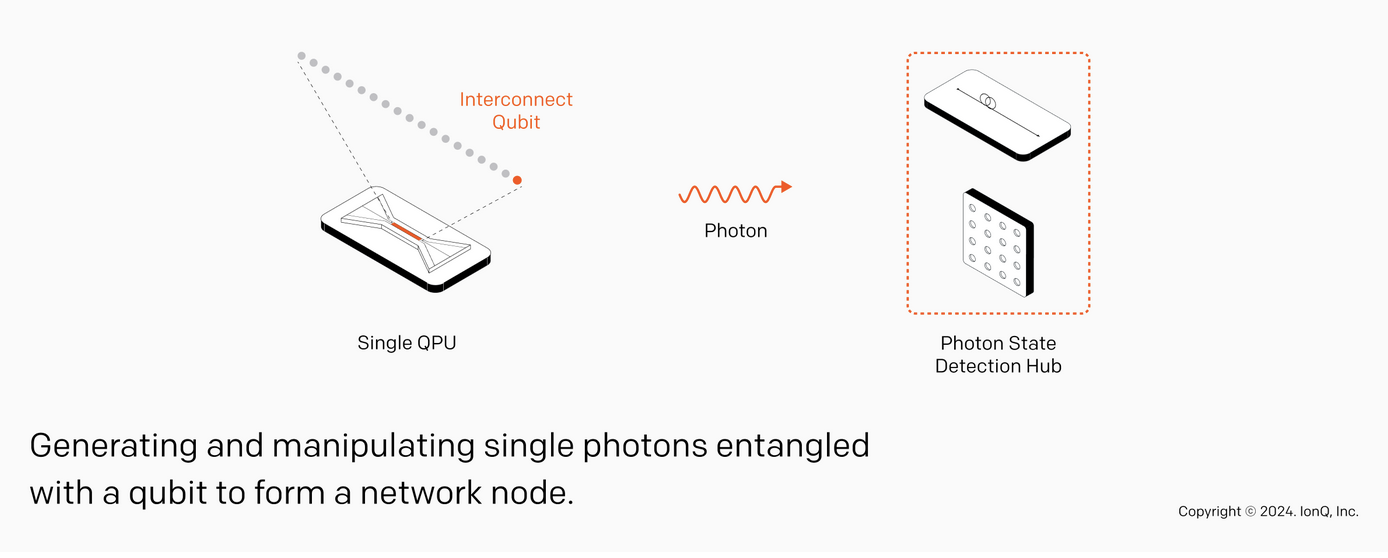In Step Toward Quantum Networks, IonQ Generates Photons Entangled With Ions

Insider Brief
- IonQ announced it has generated photons entangled with ions repeatedly and reproducibly.
- The company stated that this is a critical step toward creating future quantum systems to communicate and transfer information between each other.
- It will also play a role in helping IonQ deliver significantly higher computational power in next-generation systems.
PRESS RELEASE — IonQ (NYSE: IONQ), a leader in the quantum computing industry, today announced it has generated photons entangled with ions repeatedly and reproducibly, creating a quantum state which allows future quantum systems to communicate and transfer information between each other. This achievement marks the first known commercial demonstration of ion-photon entanglement outside of academic environments. This major step towards quantum networking and photonic interconnects will play an integral part in helping IonQ deliver significantly higher computational power in next-generation systems.
“We are proud to share this first major step towards connecting quantum systems and developing IonQ’s first networked quantum computer,” said Pat Tang, Vice President, Research & Development at IonQ. “This brings us one step closer to achieving commercial quantum advantage by running deeper, more complex circuits, and lays the foundation to develop future quantum applications and quantum networking solutions.”
IonQ’s research team demonstrated the generation and collection of single photons from an ion qubit, successfully routing those photons to specialized detection optics used to verify ion-photon entanglement across this network. The work represents a crucial first step towards developing photonic interconnect protocols for quantum computing applications running across multiple quantum processing units (QPUs). While similar achievements are well documented in academia, today’s results are a testament to how technology can transfer efficiently from research settings into commercial real-world environments. More details on our achievement and approach are in our blog post.
Currently, classical supercomputers distribute workloads across multiple cores and processors to operate in parallel. In contrast, quantum networks entangle cores to form a single, more powerful quantum computer capable of running complex algorithms. Photonic interconnects will lead to integrated computation across quantum networks, not just communication between siloed parts as seen in classical setups.
Today’s announcement marks the latest effort by IonQ to build the infrastructure needed to support a future quantum network. Last year, IonQ acquired Canada-based startup Entangled Networks to expand IonQ’s expertise for running computations across multiple distributed quantum processors. Additionally, the Company expanded its Air Force Research Lab (AFRL) relationship with a $25.5M deal to deploy two quantum computing systems for quantum networking research and development.
IonQ’s quantum systems are available through the cloud on Amazon Braket, Microsoft Azure, and Google Cloud, as well as through direct API access. To learn more about how you can get started on an IonQ system today, please contact us directly at: https://ionq.com/get-ready.
